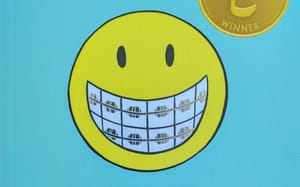We got an iMac for family use in the Summer. I never liked the keyboard and the mouse keeps sticking as crumbs and so on get lodged in it. Myself and my son headed off to Micro Center the other evening to explore replacements. They had sold out of the new ‘magic’ mouse, so we were looking at keyboards.
Now, if I were buying a keyboard for a PC I probably would have been guided by brand and gone for a mid-price Logitech option. However, this was not on offer here. I didn’t really know anything about the brands available. As we looked at the several to chose from, I felt unable to actually select one until we had read some reviews and seen some ratings. We wandered around the store for a few minutes looking for a machine with an Internet connection so that we could do some quick research. We found one, and selected the keyboard based on a combination of price and number of stars.
I thought of this experience as I read two pieces about choice in a network age last week. The first is a nice post by Keri Smith on our aversion to taking small risks now that we can do extensive research on choices. Why buy a book by the cover when we can read the reviews …? Exactly, the type of anxiety I felt when looking at the keyboards 😉
One of the things I been thinking about lately is how the internet is causing me to take many less risks in my life. I find myself doing entirely too much research on too many things, (god knows I love researching). But is it necessary to do it with everything? Every purchase. Every question. Every topic? My book purchasing has changed dramatically given that I am now prone to sifting through dozens of reviews trying to determine which ones are most similar to my own thought process and intellectual leanings. Instead of making judgments on the publisher’s comments, I find myself endlessly judging reviewers, people I know nothing about and probably have nothing at all in common with. This seems a strange thing when you really start to think about it. If I walked into a classroom with a hundred people in it, I would assume that only about 1% of the people would be of a similar personality to myself (maybe this percentage is low, but then I sometimes fall into the category of “fringe”). Would I take advice from the rest on what to read? Definitely not. So how is it that I judge a book on how many stars it has received? [The Wish Jar – risk free life]
The second was an article in The Economist on the long tail argument. Called The world of hits, it had the following tag line: “Ever-increasing choice was supposed to mean the end of the blockbuster. It has had the opposite effect”. The article argues that the social nature of consumption and the efficiency of brands favor the blockbuster. It also notes an interesting phenomenon which results in a hit “being carried along by a wave of ill-informed goodwill”: “In “Formal Theories of Mass Behaviour”, William McPhee noted that a disproportionate share of the audience for a hit was made up of people who consumed few products of that type. (Many other studies have since reached the same conclusion.) A lot of the people who read a bestselling novel, for example, do not read much other fiction.”
The article looks at movies, music and books. I thought their analysis of the fate of Borders UK interesting:
The bestsellers are gaining in part because of a change in the retail marketplace that affects other media too. High-street bookshops, which carry a reasonable selection of what publishers call “mid-list” and “back-list” titles–that is, modestly popular and somewhat out-of-date books–are struggling. Borders UK, owner of a British chain, is reportedly seeking a buyer for its stores. Such shops are being displaced by online retailers, which offer vast selections of obscure titles, and also by supermarkets, which sell a tiny selection of hugely popular books. [A world of hits]
In this analysis, the long tail and the thick head may end up being serviced differently, with the middle squeezed.
For libraries, I think that this confirms that ranking, relating and recommending are increasingly important. However, more subtly, it suggests that while relevance, availability, authority and other core concerns may still matter, we need to think more about appropriate emphasis where library resources sit alongside other network resources in an environment of scarce attention. I think this means being more bold in suggesting resources. And I think it means working harder to link people back to library resources from external ‘blockbuster’ services (from Google Scholar, for example). And it probably means not doing some things.



